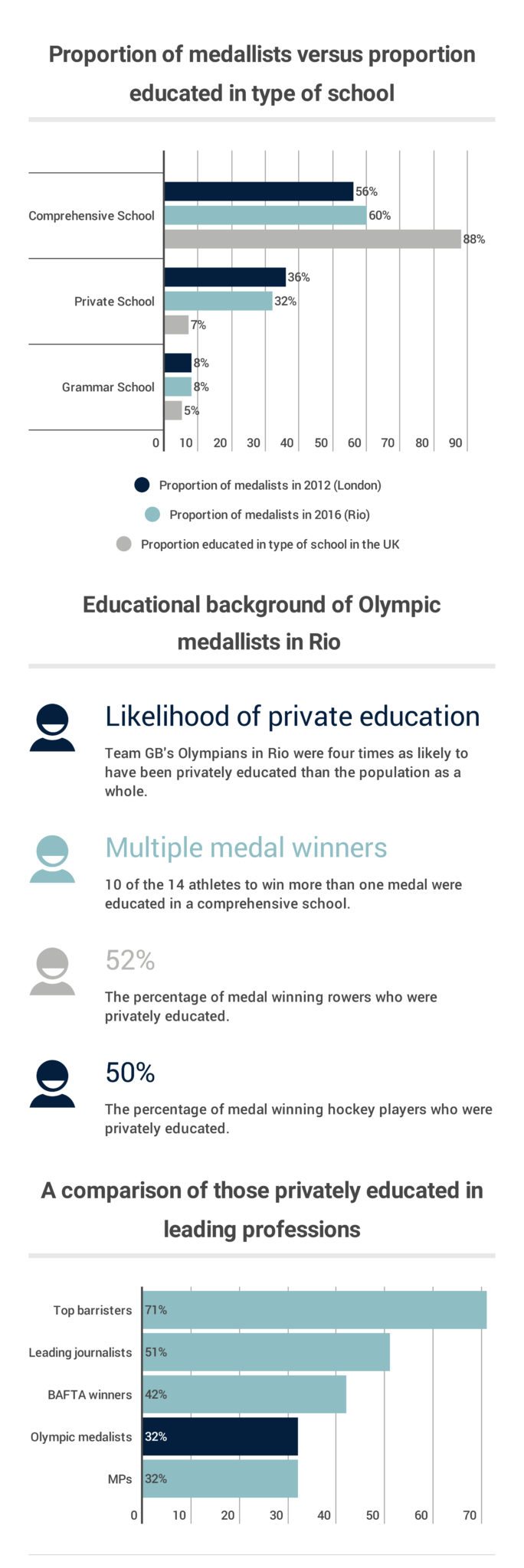Report Overview
A new generation of comprehensive educated Olympic medallists – including Laura Trott and Mo Farah – is challenging the traditional dominance of independent schools in elite sports. However, the Sutton Trust has found that Team GB’s top Olympians are still four times more likely to have been privately educated than the population as a whole, particularly in sports like rowing and hockey.
- Less than a third (32%) of Britain’s 130 medallists attended fee-paying schools, a four percentage point reduction from London 2012, when 36% of Team GB’s medal-winners were privately educated.
- 60% of this year’s British medallists were educated at comprehensive schools and 8% went to grammar schools. 92% of the medal-winning cyclists were educated at either a comprehensive or a state grammar school.
- Although the proportion of privately educated athletes in Team GB this year was higher than in 2012 – up from 20 to 28% – the proportion of medallists educated at comprehensives has grown. 62% of medals were won by comprehensive educated athletes compared to 30% for those educated at independent schools. When total numbers of medals are considered, ten of the 13 athletes to win more than one medal are comprehensive educated.
- But there are still some Olympic sports that remain dominated by the privately educated. Over half (52%) of Team GB’s medal winning rowers attended fee-paying schools as did 50% of the winning women’s hockey team.
- An Old Etonian has won a medal at every Olympic Games since 1992, in either rowing or an equestrian sport.
Table 1: Medallists by school attended, London and Rio Olympic Games
| 2012 (London) | 2016 (Rio) | |
| Comprehensive | 56% | 60% |
| Independent | 36% | 32% |
| Grammar | 8% | 8% |
Table 2: Medals by school of winner, Rio Olympic Games
| Comprehensive | 62% |
| Independent | 30% |
| Grammar | 8% |
Table 3: Multi-medallists by school attended, Rio Olympic Games
| Comprehensive | 77% |
| Independent | 15% |
| Grammar | 8% |



